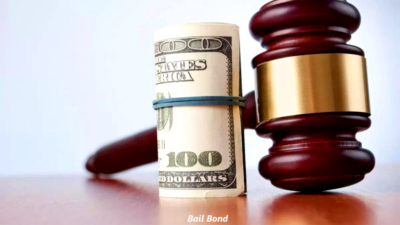Chapter 13 bankruptcy can be a lifeline for individuals facing overwhelming debt. It offers a structured approach to repaying creditors while protecting valuable assets and giving them a fresh financial start. In this comprehensive guide, we’ll explore the intricacies of Chapter 13, from its filing process to life after bankruptcy, debunking myths along the way.
Bankruptcy is often seen as a last resort, but Chapter 13 provides a unique opportunity for individuals to regain control of their finances. Understanding how this legal process works and its potential benefits is crucial for those considering this path.
How Chapter 13 Works
Creating a Repayment Plan
The cornerstone of Chapter 13 is the debtor’s ability to create a manageable repayment plan. This plan, approved by the court, outlines how creditors will be paid over a specified period, usually three to five years.
Duration of the Repayment Plan
Unlike Chapter 7, which is a quicker process, Chapter 13 involves a more extended commitment. The duration varies based on the debtor’s income and the amount of debt, providing a structured path to financial recovery.
Working with a Bankruptcy Trustee
A bankruptcy trustee is appointed to oversee the repayment plan, ensuring it aligns with legal requirements. Their role is pivotal in facilitating communication between the debtor and creditors.
Advantages of Chapter 13
Protecting Assets
One of the significant advantages of Chapter 13 is the ability to retain valuable assets that might be liquidated in Chapter 7. This includes homes, cars, and other property.
Keeping the Home
For homeowners facing foreclosure, Chapter 13 can halt the process and provide an opportunity to catch up on missed mortgage payments, allowing them to keep their homes.
Managing Secured Debts
Chapter 13 allows debtors to restructure secured debts, making them more manageable and preventing the loss of property.
The Filing Process
Gathering Necessary Documents
Initiating the Chapter 13 process requires thorough documentation, including financial statements, income records, and a list of creditors.
Filing the Petition
The formal initiation involves filing a petition with the bankruptcy court, which triggers an automatic stay, halting creditor actions such as foreclosures and repossessions.
Automatic Stay Provision
Upon filing, an automatic stay goes into effect, providing immediate relief from creditor harassment and legal actions.
Common Misconceptions
Impact on Credit Score
While Chapter 13 does impact credit scores, it is often less severe than many believe. With responsible financial management during and after bankruptcy, individuals can rebuild credit over time.
Restrictions on Debt Amounts
Chapter 13 does not have a specific debt limit, making it a viable option for individuals with higher levels of debt compared to Chapter 7.
Duration of Bankruptcy on the Record
Contrary to popular belief, the impact of Chapter 13 on credit reports is not permanent. Understanding the timeline and taking proactive steps can expedite the recovery process.
Alternatives to Chapter 13
Chapter 7 vs. Chapter 13
Comparing Chapter 7 and Chapter 13 is essential for choosing the right path. While Chapter 7 provides a quicker discharge of debts, Chapter 13 offers more extensive debt restructuring.
Debt Settlement Options
Exploring debt settlement options can be an alternative to bankruptcy, depending on individual circumstances.
Credit Counseling Services
Before deciding on bankruptcy, seeking advice from credit counseling services can provide insights into other potential solutions.
Challenges and Considerations
Sticking to the Repayment Plan
Adhering to the repayment plan requires discipline and financial responsibility. Straying from the project can lead to complications and potential dismissal of the case.
Addressing Unexpected Financial Changes
Life is unpredictable, and financial situations can change. Chapter 13 requires flexibility in adjusting the plan to accommodate unexpected challenges.
Working with Creditors During the Process
Effective communication with creditors is crucial. Informing them of the bankruptcy and the proposed repayment plan fosters cooperation and minimizes conflicts.
Life After Chapter 13
Rebuilding Credit
Post-bankruptcy, individuals can take steps to rebuild credit gradually. Responsible financial behavior and timely payments play a significant role in this process.
Financial Management Strategies
Learning from the Chapter 13 experience, implementing sound financial management strategies is essential to avoid falling back into debt.
Learning from the Experience
Chapter 13 provides a valuable opportunity for financial education. Understanding the root causes of economic challenges can prevent future issues.
Case Studies
Real-life Examples of Successful Chapter 13 Cases
Examining real cases showcases the positive impact of Chapter 13 on individuals’ lives. Success stories offer inspiration and practical insights.
Lessons Learned from Challenging Situations
Challenges are inherent in any financial recovery process. Analyzing difficult cases provides valuable lessons for others facing similar struggles.
Testimonials from Individuals Who Have Benefited
First-hand accounts from individuals who have completed Chapter 13 offer a personal perspective on the process and its positive outcomes.
Read More: Alimony 101: Everything You Need to Know Before Divorce?
Legal Assistance
Importance of Hiring a Bankruptcy Attorney
Navigating the complexities of Chapter 13 is challenging without legal guidance. Hiring an experienced bankruptcy attorney ensures adherence to legal requirements.
How Legal Guidance Can Streamline the Process
An attorney’s expertise streamlines the process, reducing the likelihood of errors and ensuring a smoother journey through Chapter 13.
Finding the Right Attorney for Your Case
Choosing the right attorney involves research and consultation. Recommendations, reviews, and initial consultations help identify a suitable legal partner.
Financial Education Resources
Importance of Financial Literacy
Building financial literacy is crucial for long-term success. Understanding basic financial concepts empowers individuals to make informed decisions.
Accessing Resources for Better Money Management
Numerous resources, from online courses to community workshops, are available to enhance financial knowledge and skills.
Post-Bankruptcy Financial Planning
Post-bankruptcy, individuals can benefit from financial planning services to create a robust strategy for a secure financial future.
Debunking Myths
Addressing Common Misconceptions
Clarifying misunderstandings about Chapter 13 helps individuals make informed decisions. Dispelling myths reduces unnecessary fears and concerns.
Providing Accurate Information about Chapter 13
Equipping readers with accurate information about the process, benefits, and potential challenges promotes confidence in their decision-making.
Clearing Up Fears and Concerns
Understanding the reality of Chapter 13 eliminates unfounded fears, allowing individuals to approach the process with a clearer perspective.
Conclusion
In conclusion, Chapter 13 is a powerful tool for individuals seeking financial recovery. By dispelling myths, understanding the process, and learning from real-life examples, individuals can navigate Chapter 13 with confidence.
FAQs
Can I Keep My Property During Chapter 13 Bankruptcy?
Yes, Chapter 13 allows individuals to retain their property while repaying debts through a structured plan.
How Long Does a Chapter 13 Bankruptcy Stay on My Credit Report?
Chapter 13 typically remains on credit reports for seven years from the filing date.
What Happens If I Miss a Payment During the Repayment Plan?
Missing payments can lead to complications, potentially resulting in the dismissal of the Chapter 13 case. Communication with the trustee is crucial.
Are there income limits for filing Chapter 13?
While there are no specific income limits, individuals must have a reliable source of income to propose and adhere to a repayment plan.
How does Chapter 13 differ from Chapter 7?
Chapter 13 involves a repayment plan, while Chapter 7 focuses on the liquidation of assets to discharge debts. The choice depends on individual circumstances.








